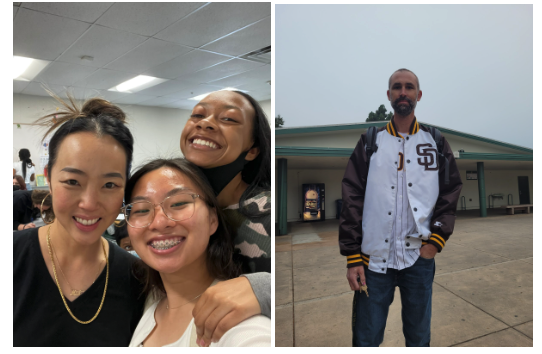Honors Afro offers high-quality education
Honors Afrocentric History and Literature are two classes students here can take in junior year, which focus on African American history and reading. Currently, Michelle Lew teaches Afrocentric Literature, and Kevin Batchelor teaches Afrocentric History. These classes first began being offered at CVHS around 10 years ago, when the program began development.
“We had a principal named Mary Ann Valles; the WASC committee that reviews schools basically said we need more diversity in our curriculum, and she as a principal was like, ‘we need to find a way to do that’. And so I and a teacher who’s now [teaching at] Redwood [High School], Josh Wheeler, developed the program out of that interest, but more because we were like, this should actually just exist here,” recounted Batchelor.
Batchelor has taught Afrocentric history since the beginning of the program. There were multiple English teachers who taught Afrocentric Literature at CVHS before Lew, but when she started teaching the class six years ago, she was the one who pushed for the course to become the honors class that it is today.
“When I took over, I looked at the book list and the sheer amount of reading we were doing and the caliber of writing that was expected of the students from this course, and I definitely felt that it was an honors level of the reading list,” attested Lew.
An AP African American Studies class is reportedly being piloted in 60 US schools this fall. When asked whether they would consider changing their classes to the AP course, Batchelor hypothesized it would already contain similar material to what they’re teaching. Instead of getting rid of their honors classes and replacing them with the AP course, Lew says she would probably add to their existing curriculum in order to allow students to take that test and pass if they choose to.
In a way unlike most other English and History classes, the Afrocentric curriculum is cohesive; Mr. Batchelor and Ms. Lew work together to shape what they teach so that students are always using concepts and skills they’ve learned in one class to advance further in the other.
“I mean, what it really lets us do is go at a much higher level, and a lot more in-depth on things that otherwise you wouldn’t be able to do. Like, in my AP US History class, some kids won’t read Frederick Douglass until like May. So you can’t reference that—they don’t understand it, or I might not have covered the 20s. But they’re trying to read The Great Gatsby. And so there’s a gap there,” Batchelor pointed out.
Both teachers agree that collaborating has really helped their ability to teach what they want to in the class.
“I definitely think working with the history department really enriches the literature, because it gives the context needed to understand when these writers were writing and why they’re writing about the things they are. I don’t even think you can understand the books we read without the historical knowledge,” admitted Lew.
The curriculum is still developing, and to some degree ever-changing. Both teachers have a lot of content they’re interested in and would like to cover, but there’s just not enough time in the school year. Many materials used in the class are recent.
“There’s always additional readings we can do, constantly, so that’s a constant negotiation between the two of us. Mr. Batchelor, in his class, has to do so much of the content with history that sometimes there isn’t a lot of time to do all the primary documents or additional pieces that he would like to do, so then I’ll take some of those,” explained Lew.
They still enjoy teaching Afrocentric, and are motivated to expand and improve on the curriculum they already have.
“Yeah, the fact that we still are inspired by random things we hear or read. And then we’ll call each other and be like, ‘Oh, try this. Let’s try that!’. I think it just shows that we’re still invested in not just resting on our laurels, which we could, easily since we’ve done this so many times,” said Lew.
They also admire their students.
“I find their willingness to engage in the subject matter and question and just really reflect on it very inspiring. I definitely think that the students are really engaged in the reading because they have the historical piece as a foundation, and they can see how it’s relevant to what’s going on today. So because of all of that, I love the student engagement that I see,” shared Lew.
“The other thing that’s impressive about a lot of them is their perseverance. We really challenge them, and you know, when you come in as a junior to those courses, and you’re used to the sophomore-level English and history classes, the leveling up is really significant. I’m always impressed with how much they grow because they’re willing to put the effort in and it’s about that willingness to put the effort in,” added Batchelor.
Both are experienced teachers and were teaching for many years before they started teaching the Afrocentric courses at CVHS.
“I think I wish someone told me early on that it would take me years to feel confident and really comfortable. And like I own the curriculum. Like, in the room. That was really hard. But once you do feel good about it, you do find it. It’s fantastic,” said Lew.
Even though Mr. Batchelor didn’t expect to go into a long teaching career, he values it. Both teachers still love their jobs.
“I like it. I particularly like teaching these classes. I like the partnership. You know, it’s the ability to work with somebody else who’s enriching the kids,” remarked Batchelor.
“I love teaching. I still love coming to work every single day,” confessed Lew.
Consider taking Honors Afrocentric English and History, and being able to be taught by these two amazing teachers!

